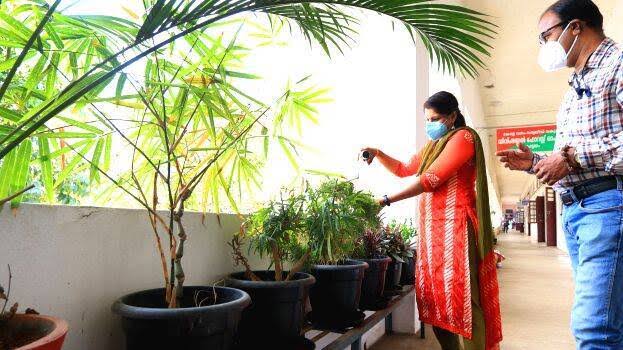Initiatives
Green Protocol
What is Green Protocol?
Green protocol, a set of procedures and guidelines laid down as a part of waste management initiatives , includes practices to reduce the amount of waste, eliminate waste generation or accumulation, proper sorting and disposal of the generated waste scientifically. These procedures are intended to have a behavioural change in individuals and community as a whole so as to make them follow by sorting waste into recyclables and compostables, reducing by-products and eliminating waste. Green protocol is intended in all spheres of life be it family, office, personal life, public events, weddings, conferences, festivals etc. The basic assumption of Green Protocol is to make oneself self determined so as to avoid disposable items completely, instead adopt alternative sources. Further it prompts people to convert the organic waste generated into compost or biogas thereby substantially reducing the amount of waste production. Green protocol initiatives will definitely minimise the amount of waste generated in the society and will eradicate hazardous health issues caused by dumping and burning of inorganic materials. Adherence to green protocol during festivals, celebrations, gatherings, fairs and weddings where there is a large participation of people will obviously reduce the amount of waste generation.

Why Green Protocol?
The amount and type of waste generated daily is increasing, signaling a disaster for the soil, man and humanity. 'Cleanliness through Green Protocol'is taking on another interpretation. Green protocol activities are intended to reduce the production of waste without suffering by looking for a way to dispose of it after generating the waste.
What can we do to implement the Green Protocol?
Reducing the amount of waste.
Segregation of waste at source.
Using only recyclable materials.
Maximizing the use of recyclable materials.
Complete elimination of the use of all kinds of disposable items from daily life.
Instead of disposable items, use eco-friendly items that can be washed and reused (steel, glass, ceramic pots, cloth bags, etc.).
Use of plastic materials is prohibited and separate organic and non-organic wastes
Fertilize the organic waste through composting/set up a biogas plant and invest in it to convert it into biogas.
Inorganic materials should be sorted separately, cleaned, dried and delivered to the local authority or waste dealers for recycling when the required quantity is reached.
Separately stored e-waste should be handed over to authorized waste dealers, Clean Kerala Company or local self-government body for collection.
Eco-friendly bags made of cloth, jute, paper or rope can be used, completely avoiding the sacrifice of single-use disposable covers.
When going to the shops to buy food items, wash and use utensils can be carried.
Avoid the habit of throwing all kinds of garbage, clean it separately and keep it and give it to the person or organization that collects it for recycling.
Fluxes can be replaced with fabric banners, decorations and other eco-friendly materials.
